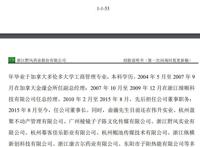子谦译文|创业教什么:六种主流创业理论的对比研究(38)
2023-06-03 来源:旧番剧
第四个概念维度涉及方法在多大程度上认可创业者在创业过程中的才能,尤其是与新信息,失败和意外有关的因素。尽管除了商业规划之外,所有的创业方法都对创业创造过程有一个递归的理解,但它们允许不同程度的过程所有权。商业计划对其处方有一种线性的理解,虽然在实际过程中可能会发生重定向,但该方法在这方面并没有提供明确或隐含的建议。而效果逻辑理论、设计思维和精益创业方法明确地包含意外和偶然性,发现型驱动型计划和规范性创业方法指导创业者避免未来的意外。值得注意的是,从原则上讲,创业方法是可以接受方向上改变的想法,但是在这些重定向发生的点上,两种方法之间出现了差异。在效果逻辑理论、设计思维和精益创业方法论中,只要新信息被挖掘出来,就会发生重定向,但在发现型驱动型规划和规范性创业方法中,重定向的决定是在一个完整的周期结束时才会做出的。尽管发现型驱动规划和规范性创业方法已经将重定向的想法纳入到他们的处方中去,但他们没有提供明确的理由来说明为什么面对这些新兴理解,这些方向上的变化是相关和必要的。
4.5Continuous learning 持续性学习
The fifth conceptual dimension refers to the role of feedback and how it provides learning opportunities for entrepreneurs during venture creation activities. Continuous learning from feedback plays an important role in shaping the trajectory of the entrepreneurial process (Minniti and Bygrave 2001). Feedback can be the outcome of a deliberate process of information gathering, as in the lean startup methodology, design thinking, and discovery-driven planning. It can also be the result of serendipity and happenstance, as in effectuation and prescriptive entrepreneurship (Harmeling and Sarasvathy 2013). In all entrepreneurial methods except for business planning, a high value is placed on continuous learning and the philosophical grounding of the venture creation process in newly learned insights. Feedback from the external environment is stressed as a source of continuous learning (cf. Kolb 1984). Effectuation deviates somewhat from the other methodologies by placing less focus on continuous learning as an inherent strategy and moreasa by-product of following other recommendations. The lean startup methodology and, to some extent, design thinking are more explicit, using validated learning as a cornerstone of their main ideas. Such a continuous learning necessitates a need for revisiting and revising transient assumptions held by entrepreneurs in the face of newly acquired information (Ries 2011).
猜你喜欢
动漫推荐
免责声明:动漫番剧数据来源网络!本站不收费,无vip,请勿上当!
www.jiufanju.com-旧番剧





















